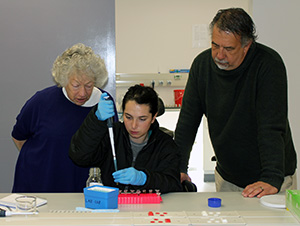Latest News Archive
Please select Category, Year, and then Month to display items
12 December 2024
|
Story Lacea Loader
|
Photo Supplied
 Dr Cias Tsotetsi, newly appointed Campus Vice-Principal: Academic and Research on the UFS Qwaqwa Campus.
Dr Cias Tsotetsi, newly appointed Campus Vice-Principal: Academic and Research on the UFS Qwaqwa Campus.
The University of the Free State (UFS) is pleased to announce the appointment of Dr Cias Tsotetsi as the Campus Vice-Principal: Academic and Research on the UFS Qwaqwa Campus as from 1 January 2025.
He is currently Senior Lecturer and Assistant Dean in the Faculty of Education on the UFS Qwaqwa Campus. He holds the following qualifications: BEd(Hons), Postgraduate Diploma in Education, Magister Educationis with specialisation in Policy Studies and Governance in Education, and PhD with specialisation in Philosophy and Policy Studies in Education – all from the UFS.
Dr Tsotetsi operated in the school environment for about 24 years before joining this university in 2010. Since then, he has taught several modules in the Faculty of Education and published several co-authored research articles as well as conference papers on community engagement, teacher development, and participatory action research methodologies, among others. He is also well versed in supervising postgraduate students.
He has received awards from both the university’s Scholarship of Teaching and Learning and the Research committees for his research and academic scholastic performance. He is a member of various committees, such as the Faculty of Education Academic Advisory Board and the Committee for Title Registration and has been participating in partnerships and in NRF-funded projects with peers from universities such as the University of KwaZulu-Natal, the University of Zululand, the Durban University of Technology, and the University of Venda.
“Dr Tsotetsi has a clear understanding of the current systems and operations on the Qwaqwa Campus and is positioned to drive its development. His experience and initiatives involving staff and postgraduate students are exceptional and inspiring. We look forward to Dr Tsotetsi’s valuable contribution to the UFS Qwaqwa Campus and the institution in his new position,” says Prof Prince Ngobeni, Campus Principal of the Qwaqwa Campus.
“I feel honoured to serve the university – and the Qwaqwa Campus in particular – and look forward to working with the campus and its management to develop the research portfolio,” says Dr Tsotetsi.
Monkey research attracts international attention
2016-07-11

Prof Trudy Turner from the University of
Wisconsin-Milwaukee and Prof Paul Grobler
from the Department of Genetics at the
University of the Free State, together with one
of the students researching monkey genes.
Photo: Siobhan Canavan
For this year’s Summer School programme, Prof Paul Grobler, from the University of the Free State Department of Genetics focuses on research about the conflict between monkeys and humans in areas where monkeys are regarded as problem animals.
Global expert part of research
This year, Prof Grobler is hosting a group of students and lecturers from the United States of America (USA). The group includes Prof Trudy Turner from the University of Wisconsin-Milwaukee (UWM), a global expert on vervet monkeys. She has been working with the Department of Genetics at the UFS for the past fifteen years, and has also been appointed as an Affiliated Professor in the department.
“The Summer School programme is an opportunity for the American Primatology students to gain practical experience in Africa,” says Prof Grobler.
International interest in Summer School
This year’s Summer School programme involves four lecturers and nine students. The lecturers are from the University of Wisconsin-Milwaukee (UWM), the University of California, Los Angeles (UCLA), Boston University, and Central Washington University.
“We use the genetic information to determine
how monkeys historically infiltrated the
different areas in South Africa.”
This year’s focus is on the genetic structure of the monkeys in South Africa, and research that is being done on the differences and similarities in monkeys from different areas. “We use the genetic information to determine how monkeys historically infiltrated the different areas in South Africa,” says Prof Grobler.
Local nature reserve acting as host
The group will perform field work, including observing monkeys in the Soetdoring Nature Reserve, as well as laboratory work in the department, where they will be assisted by two laboratory technicians.
Two years ago, Prof Grobler and his department tested this idea on a smaller scale, and now they hope to make this a regular event.